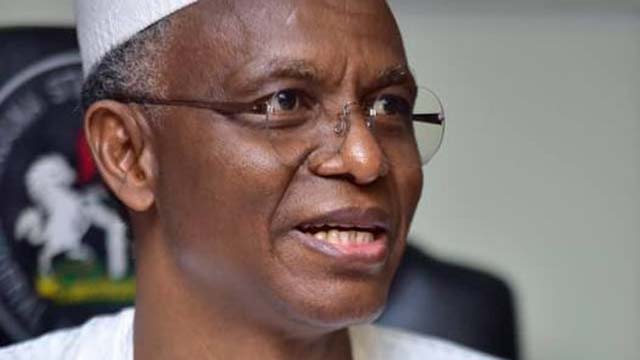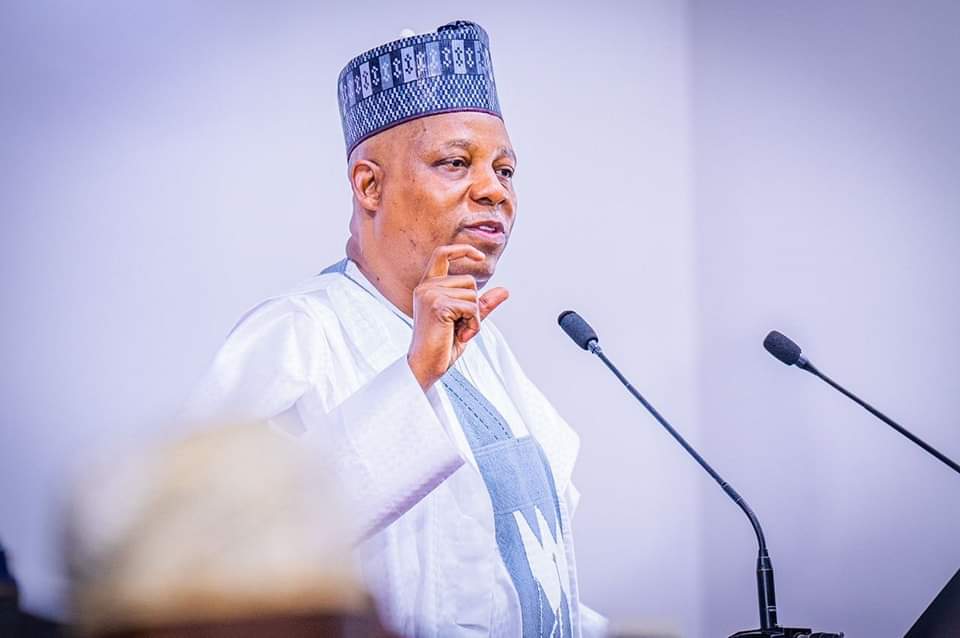Nnaji Highlights Tinubu's Strides in Energy, Innovation, Jobs in Two Years
By Ikechukwu Emmanuel
Chief Uche Geoffrey Nnaji, Minister of Innovation, Science and Technology, has applauded President Bola Ahmed Tinubu, for steering Nigeria into a new era of science-driven, innovation-led development within the past two years.
In a statement signed by his Senior Special Adviser (Administration), Dr. Robert Ngwu, the Minister described the Tinubu administration as a “powerhouse of progress,” citing milestone achievements across clean energy, digital innovation, healthcare, security, agriculture, and job creation.
One of the administration’s flagship initiatives is the Renewed Hope Solarisation Project—a first-of-its-kind energy gift to Nigeria’s tertiary institutions and federal teaching hospitals. Under this initiative, each of the 36 states and the FCT will receive a 2MW solar hybrid power system, targeting one federal university and one federal teaching hospital per state.
“This pilot phase offers eco-friendly, reliable electricity to institutions long burdened by erratic power and rising utility costs,” Nnaji stated. “It is a beacon of hope and a foundation for national rollout.”
The Ministry is also advancing the Sustainable Energy Access Project (SEAP)—a nationwide clean energy and clean cooking initiative covering all 774 local governments. Full-scale implementation is projected to create nearly one million jobs, with a strong focus on youth, women, and artisans—echoing the Renewed Hope Agenda’s commitment to inclusive development.
In the domain of space technology, President Tinubu approved the launch of four new satellites—NigeriaSat-3, Sat-4, Sat-5, and NigeriaSAR-1—under the National Space Research and Development Agency (NASRDA). These assets will bolster national security, disaster response, border surveillance, agriculture, and geospatial land administration.
Another milestone is the formulation and national validation of Nigeria’s first Cleantech Innovation Policy, developed through the National Cleantech Innovation Programme (NCIP) with support from international partners. The policy aims to fast-track Nigeria’s green industrial revolution, climate resilience, and economic diversification. Its full implementation is expected to generate over 500,000 direct and indirect jobs in sectors such as agritech, renewable energy, circular economy, green transportation, and smart manufacturing.
Special emphasis is placed on empowering women, youth, and persons with disabilities, through inclusive funding, training platforms, and national mentorship schemes.
To reduce Nigeria’s overreliance on raw material exports and curb the costly dependence on imported finished goods, the Federal Ministry of Innovation, Science and Technology, through RMRDC, has proposed the 30% Minimum Value-Addition Bill. This pioneering legislation mandates that at least 30% of local value must be added to raw materials before they are exported or utilized in industrial production.
In a predominantly import-driven economy, the bill is a strategic policy shift designed to stimulate domestic manufacturing, enhance export earnings through value-added goods, and create widespread employment across key sectors such as agro-processing, extractives, and light industry. It also seeks to strengthen supply chain resilience, foster SME growth, and reduce vulnerability to global market shocks. By anchoring industrial progress on local capacity and innovation, the bill aligns with President Tinubu’s Renewed Hope Agenda and reinforces Nigeria’s path to economic self-reliance and competitiveness.
As part of the Ministry’s industrialization strategy, the revival and optimization of the cassava value chain has become a strategic national priority. Leveraging Nigeria’s comparative advantage as one of the world’s largest producers of cassava, the Ministry is facilitating the deployment of mechanized and semi-automated processing systems to enhance value addition, reduce post-harvest losses, and create high-impact jobs across rural communities.
A central component of this initiative is the extraction and industrial utilization of high-grade starch from cassava (HGCS), which serves as a versatile industrial raw material with a wide array of downstream applications spanning multiple sectors like food and beverage (Glucose syrup, sweeteners, baking ingredients, modified starch), pharmaceuticals and nutraceuticals (Tablet binding, dietary supplements and excipients, medical-grade glucose and dextrose), industrial and chemical manufacturing (Adhesives and glues, Biodegradable plastics and packaging materials, Paper sizing and coating agents, Textile finishing agents, Ethanol and industrial alcohol production), cosmetics and personal care (Starch-based baby powders, Organic thickeners and skin-conditioning agents), and agriculture and animal feed (Livestock feed concentrates, Binders in fish and poultry feed, Biofertilizer components).
By fostering the development of these value chain products, the Ministry is unlocking significant opportunities for import substitution, export diversification, and rural industrialization. This intervention aligns strongly with President Tinubu’s Renewed Hope Agenda and is poised to transform cassava from a subsistence crop into a strategic industrial commodity driving national prosperity.
Similarly, a €7.9 billion Green and Blue Methanol Industrial Complex is in the works to deliver decarbonization in blue economy, and low-carbon fuels, reinforcing Nigeria’s leadership in Africa’s clean energy transition.
In line with the clarion call of President Tinubu, GCFRlllllll, the Ministry has made a significant push toward research commercialization, with industrial-scale fabrication of agro-processing equipment—crushers, mixers, dryers, stoves, ovens—aimed at improving food security and reducing post-harvest losses. These machines are now being deployed in semi-automated production lines for palm oil, cassava, plantain, soybean, vegetable oil, etc.
One of the country’s most notable health breakthroughs is the development and field-testing of Nigeria’s first Artemisinin Extraction Plant, which extracts the active pharmaceutical ingredient (API) from domesticated Artemisia annua—a game-changing innovation in the fight against malaria.
The National Research and Innovation Fund (NRIF), which is currently being finalized will empower scientists to commercialize their findings, with a pipeline of over 1000 patents expected annually. These outcomes position Nigeria as a knowledge economy anchored on innovation, not just consumption.
President Tinubu also established an Inter-Ministerial Innovation Committee, chaired by the Vice President, to align innovation and job creation targets across all MDAs. With support from the Nigeria Bureau of Statistics Nigeria now tracks metrics such as job creation, emissions reduction, and gender participation using real-time dashboards.
Under Tinubu’s strategic foreign policy, the Ministry has secured new partnerships with UNDP, UNESCO, the Commonwealth Secretariat, and the African Development Bank, boosting investment flows into Nigeria’s innovation ecosystem.
“Thank you, Mr. President,” Nnaji concluded. “From satellite skies to solar campuses, and from mechanized farms to biotech labs—Nigeria is rising, and it is powered by innovation.”










